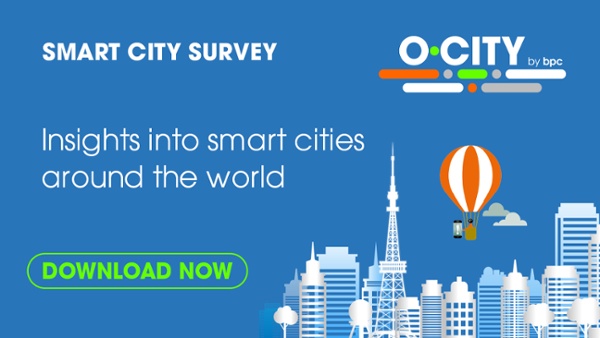The best smart cities in Europe
Ancient history is oozing from many European cities. But that doesn’t mean that they have to stay behind on tech and innovation. The optimisation of resources and maximisation of citizen welfare was always on Europe's community agenda. Driving the innovation forward some of the cities formed perfect examples of application of modern technologies towards public services. These are the best smart cities in Europe.
Zurich, Switzerland - turning infrastructure into IoT-enabled networks
As far as a city can be smart, Switzerland's capital Zurich ticks all the boxes. But there is one network that forms the base of the whole smart city: The Long Range Wide Area Network (LoRaWAN),
With LoRaWan, data is collected throughout the city; these data and insights are the building blocks for Zurich's smart city solutions. The LoRaWan system runs projects involving city challenges like air quality, water management and parking spaces. Developing new applications and use cases is a team sport: in Zurich, government departments and their project partners work together on a smart city that turns infrastructure into IoT-enabled networks.
Turin, Italy - the combination of crowdsourced literature and technology
Seeing a town through the eyes (or words) of great writers is one of the best ways to get to know it. This experience was the starting point for developing a storytelling application, City Teller, to get tourists to learn all about the city of Turin.
Since 2013 Turin has been building on several smart city projects, primarily aimed at mobility and creating a sustainable city. The City Teller supports these two principles and aims at the tourists that are the city’s prime source of income. This tool gets tourists to watch and learn about Turin through stories from great writers. Now, City Teller contributes to a more high-tech and knowledge-based economy attracting a higher spending type of tourist.
Barcelona Digital City, Spain - supporting the local economy
Small local businesses are struggling to survive in digital times. Although, that might not always be the case, because sometimes digital solutions can actually stimulate a local economy. In Barcelona for example, the REC (Real Economy Currency) is introduced as a local social currency: ‘allowing transactions in a community between individuals, institutions and businesses that accept it.’
The REC and other smart city solutions (like managing lighting, trash bins, and parking spots) make Barcelona one of the European smart cities to keep an eye on.
Copenhagen, Denmark - connecting data for a smart and green city
Data is the source for many of the insights and innovations tested in Copenhagen’s Solutions Lab. The exciting thing is that public authorities offer these data-driven solutions combined with qualified private data.
The (environmental) challenges of a growing urban population in Copenhagen are met by a continuous collaboration between companies and knowledge providers - aka data providers. This results in not only a smarter city but a greener one as well. Copenhagen is one of the best examples of a smart city that wants to combine environmental ambitions with technological initiatives.
Helsinki, Finland - mobility as a service (MaaS)
Modern times are all about flexibility when it comes to how we move from point A to point B. We don’t want to plan a trip using just a train, or a bike, or a car - we rather combine the fastest and most convenient means of travel. This can be done when mobility is offered ‘as a Service’, and precisely that is done now in Finland’s capital Helsinki.
With Helsinki’s ‘Whim’ application public transport is connected to taxis, cars, bikes and other alternatives to plan a trip. By combining all these options in one app, the use of public transport increases and the smart city citizens of Helsinki can plan their travels in the most user-friendly way.
Santander, Spain, increasing the experience of the city
Cities have so much more to offer than their citizens and visitors sometimes know. To increase the experience of the city, Santander has developed a City App.
Payment methods and information in the app help the citizens and tourists of Santander enjoy all the city's facilities. All through Santander information is gathered by sensors. This information is used to guide people conveniently through the city. Also, data analytics are used for social and economic analysis, generating insights for a better future.
This might sound abstract, but Santander has made a translation of data insights into practical tips and functionalities.
Learn more about smart cities all over the world
These smart cities in Europe are not the only examples you can learn from. All over the world, cities are becoming smarter through automation and new technologies; they improve services by using data and increase operational efficiency.
In the latest edition of the Smart City Survey, you can read all about how smart cities bridge real life to digital.



